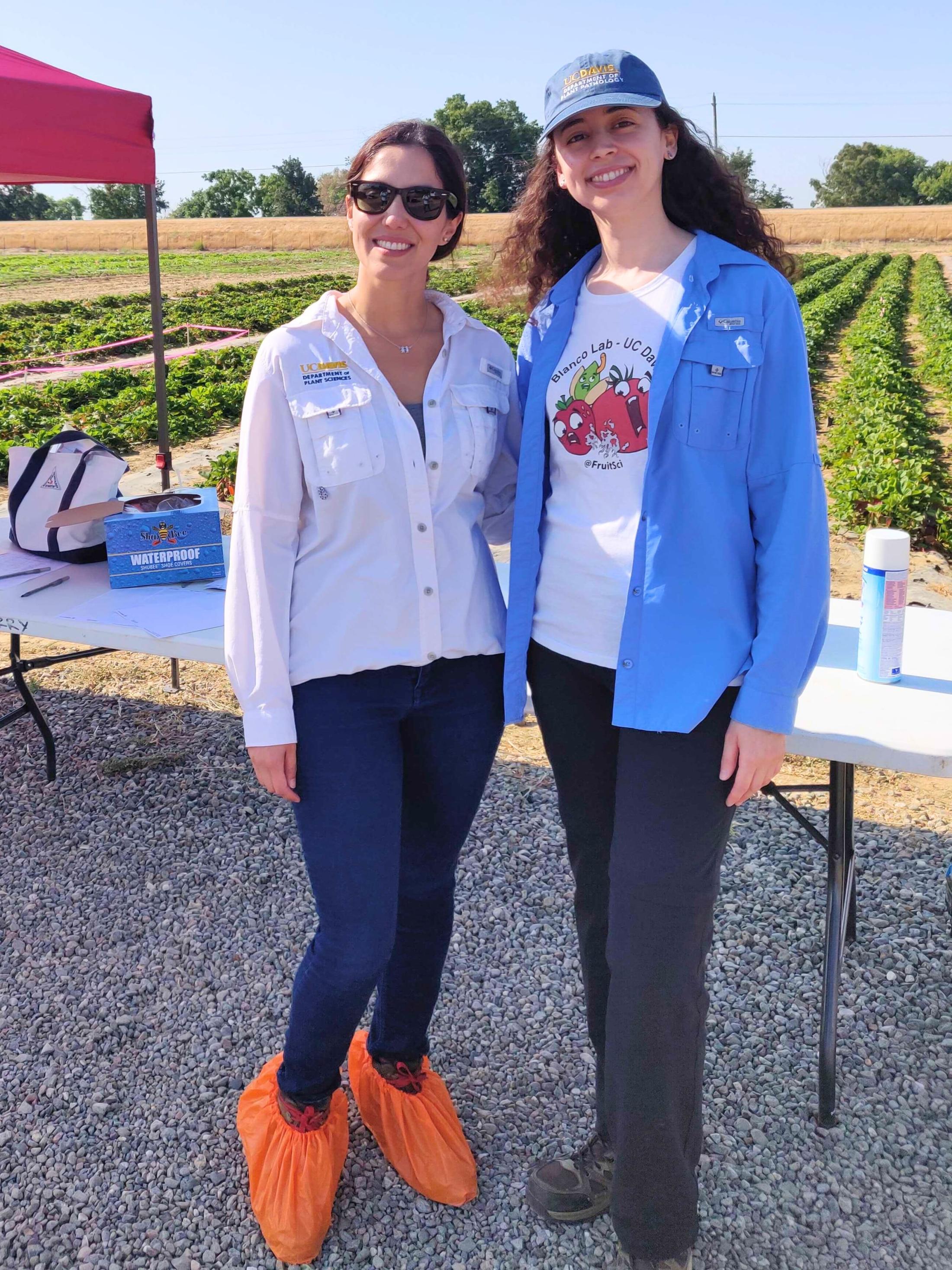
Blanco lab members win ISHS Young Minds awards
"At the forefront of the postharvest community"
Department of Plant Sciences graduate students Isabel Ortega-Salazar and Saskia Mesquida Pesci swept the Young Minds awards for the best student oral presentations at the Postharvest 2024 International Conference, recently hosted by the International Society for Horticultural Science in New Zealand.
Only two Young Minds awards are given to junior scientists at each of the society's yearly conferences, and members of the Blanco lab took both events. Ortega-Salazar won the IX International Postharvest Symposium event. Mesquida Pesci won the VII International Symposium on Postharvest Pathology event.
Isabel Ortega-Salazar

Ortega-Salazar won for her presentation, “CRISPR tomatoes with improved shelf-life.”
She works with CRISPR gene editing technology to extend the time tomatoes are attractive in the grocery store. She achieves this by using CRISPR to knock out the genes that promote softening, resulting in a healthier-looking fruit. As a result, the tomatoes she studied retained an attractive appearance for up to 36 days after being harvested.
“Attending this conference was a wonderful opportunity to exchange ideas, network, and explore potential collaborations,” Ortega-Salazar said. “Winning the award was an honor and made the event even more special.”
Ortega-Salazar recently graduated from the horticulture and agronomy graduate group with a doctoral degree and has taken a job in Washington state.
Saskia Mesquida Pesci
Mesquida Pesci won with her presentation, “Early detection of gray mold in strawberries.”

Catching gray mold early can help farmers prevent larger infections in their strawberry crops. To find early signs of decay, Mesquida Pesci studies volatile organic compounds, which are gases emitted by fruit when it decays. She also analyzes infections using multi-spectral imaging and gas chromatography-mass spectrometry.
“Through the VOC and MSI analyses, we can detect gray mold early and enhance our understanding of the interactions between fruit and pathogens,” Mesquida Pesci explained.
Attending the conference expanded her knowledge even more. “I learned about the cutting-edge work being carried out internationally in the field of postharvest pathology,” Mesquida Pesci said. “ I even participated in one of the sessions as co-moderator.”
Mesquida Pesci recently graduated from the plant pathology graduate group with a doctoral degree.
Experience supported with travel funds
“I am incredibly proud of Isabel and Saskia,” said Bárbara Blanco-Ulate, an associate professor in the department and the principal investigator for both students. “They have effectively communicated their research and positioned the Blanco Lab at the forefront of the postharvest community.”
Two more members of the Blanco lab attended the conference. Graduate student Elia Gutierrez Baeza presented “Melon skin color analysis;” and Adrian Oscar Sbodio, a staff research associate, presented, “Multispectral imaging of postharvest diseases.”
“I am grateful to the Department of Plant Sciences for supporting them in attending the meeting,” Blanco-Ulate said. “We want to thank the department travel awards and the Jastro Shields Award that made it possible for us to attend this conference."
The Postharvest 2024 International Conference is the largest gathering in the postharvest field. It takes place every four years and gives professionals and graduate students alike the opportunity to present their research to the scientific community. The conference also offers workshops and panels on postharvest management, pathology and horticultural health-related research.

Media Resources
- Trina Kleist, UC Davis Department of Plant Sciences, tkleist@ucdavis.edu, (530) 754-6148 or (530) 601-6846
